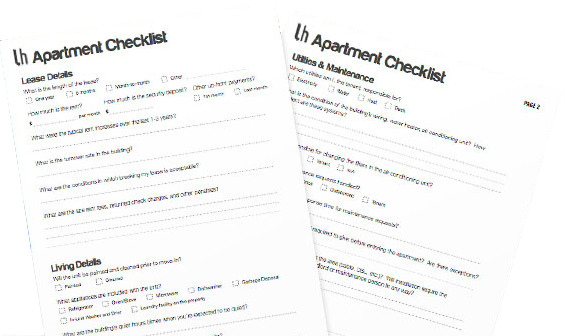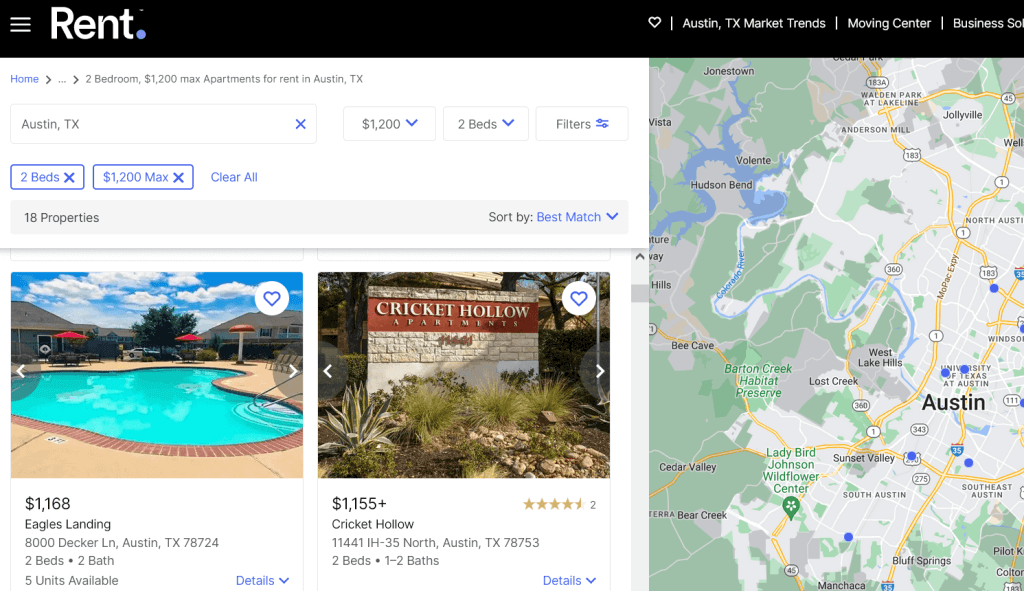My partner and I have officially begun our apartment search to move in together. It’s a big move forward for us, as we have been dating for 2 years, but living separately. Fears notwithstanding, it’s very important to us both that we find an apartment where we can feel at ease, comfortable, and have enough space.
We’re both people who happen to need our alone time, and we want to avoid a situation of feeling smothered or claustrophobic. At the same time, we also want to have a warm home where we can snuggle up to watch a television show or cook together.
I’m a self-professed expert organizer, and I’m trying to keep this apartment search as organized as possible to avoid getting dizzy amongst all the options and prices. After many apartments, I’ve learned what it takes to keep the apartment hunt organized!
1. Figure out what features you’re looking for
Chances are low that you will find your perfect apartment or house, but what features are you looking for? Which of these are an absolute must, and which are you willing to give up on?
In my case, I need the apartment to be close to a bus stop –otherwise, I have no way to get to work. That’s a feature that I absolutely cannot negotiate on. On the other hand, although I would love to have a garden, it’s not a necessity.

2. Calculate your rent budget
How much can you each spend monthly on rent? Are you able to place an additional smaller amount for a far better apartment? You should both calculate a spectrum of prices you are willing and able to cover, from the ideal amount up to a maximum.
Of course, the rent can vary (sometimes significantly) depending on location. For instance, apartments in Denver Colorado may be cheaper than similar apartments in New York City or Los Angeles. The location matters!
In our case, my partner and I have a preferred budget. However, if we find a great apartment, we’re happy to pay the extra amount in order to live comfortably.
3. Consider additional costs
Every apartment and house have hidden additional costs. Make sure you keep track of what they are as they could add up to a significant amount. In my case, we need to pay land tax on the apartment and a building maintenance cost.
Some rental prices cover gas and water prices, while others do not. Make sure you track all this information and ask the landlord when you visit the apartment. It could make a huge difference in price.
4. Create a form to fill in
This may not be the most tech-savvy way to handle this, but I like to create a form specifying all the important information I need to ask. You can see an old one I created here, and a great one from LifeHacker here. It made apartment hunting far easier to track and ensured that we got all necessary information to make a smart decision.

5. Use rental websites and apps
These great sites are constantly updated with the latest in available apartments. I use two or three since they usually feature different apartments.
The sites are very easy to use. For example, you can search for apartments for rent in Austin, and filter the max price you can budget and the number of rooms. If you need more detailed filters, you can even specify the number of bathrooms, pet policy, and amenities. Then all you have to do is go through the results and just like that, you’ve started your apartment search.

People can also upload photos of the homes, which help pre-judge the spot, and provide plenty of information like the size of the apartment, cost, included furnishing, etc. I can even take a look quickly on Google maps to see how close it is to a bus stop. Plus, it avoids real estate agent finder’s fees.





Alone time is so very important to a couple. I happen to live in quite a large house, so I get my alone time when I need it. My Hubs has his Den… I guess they call it a Man Cave today. I pretty much stay out of his space.
These are great tips for apartment hunting! My main thing is having enough bathrooms I hate having only 1 it is a pain when you have a family.
Maybe proximity to grocery store? And what utilities are in the area?
I live in an apartment and the reason I chose this unit (although it is a little expensive) is that it is only one street away from the house of my 76 year old mother. The street is very well lighted. We are 100 meters away from a hospital and a supermarket; 120 meters from a Police precint / fire station; 120 meters from the wet market. Most important is that our apartment is very close to a Catholic church. I would say that in choosing an apartment, take a look at the proximity of major services you would need.
Great information for anyone!! We lived in a condo for 9 months before buying our first home. We definitely looked high and low for that perfect 1st place!
I don’t miss living in an apartment! But yes, these are very important factors!
These are great tips for anyone!
These are all definitely good points! I remember those days and it’s definitely difficult with apartments. I’m sure it’s worst now, especially with all the tough credit situations added on!
You have the most amazing tips ever on how to start living your independent life. I’m only 18, and this post will definitely help me in the future. Bookmarked 🙂
A great post! I remember when we were looking for apartment. My husband made a big list of things about the features we needed. And we found one, that has all the things we asked for 😀
i hope i knew that two years ago
Thanks for these awesome steps. I will be finding a new place to live soon and these will definitely come in handy!!
I am pretty organized until I started this new job and I’m fixing to pick up a second job. I really need some ways to organize that are not time consuming!!! Thanks!!!
I wish I knew this too! It would have saved us a lot of time when we were apartment hunting a couple of years ago. My main concern is the residential density. I prefer an apartment where there are not too many units to a floor.
Good and informative article.